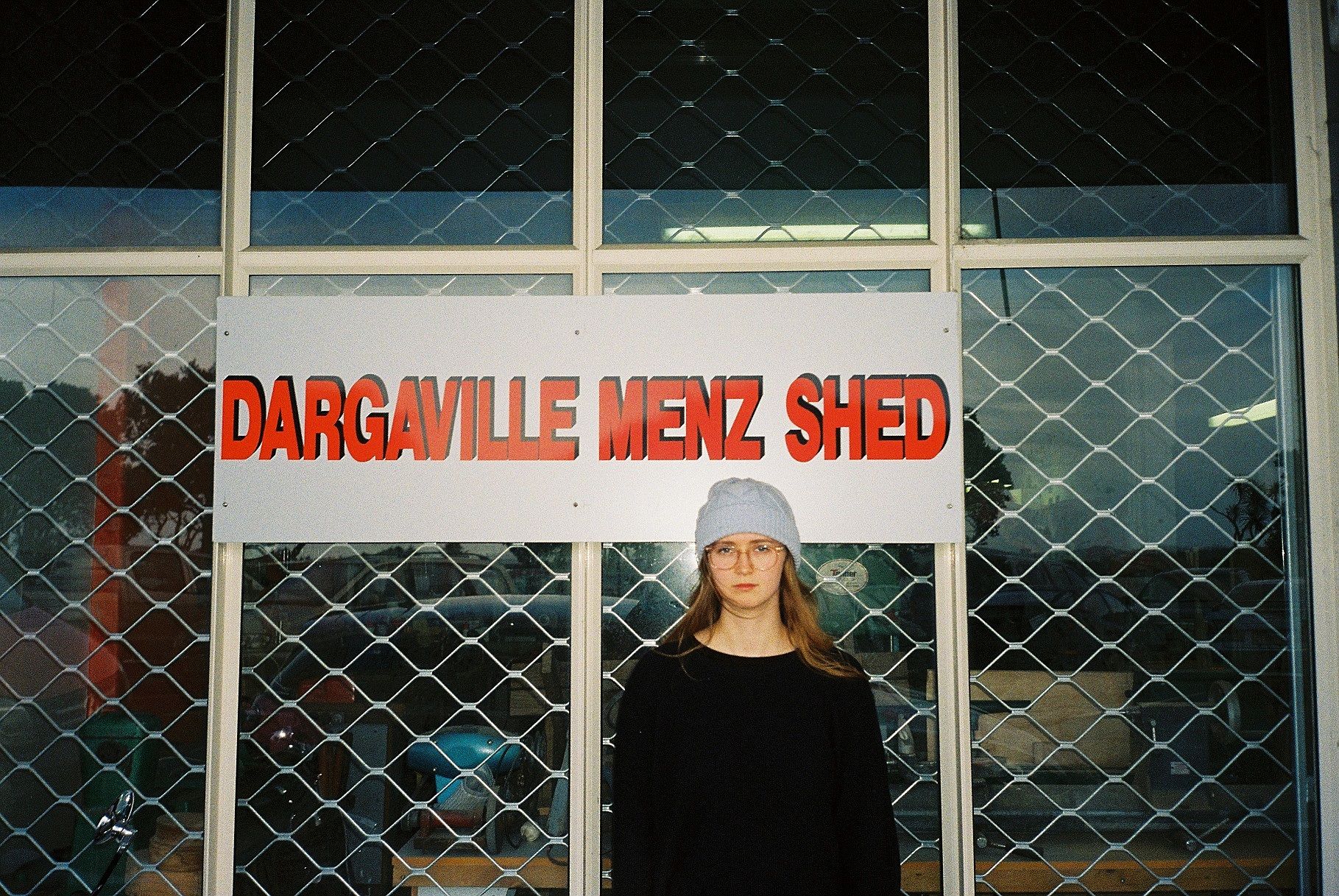Choosing Life: A Review of Every Brilliant Thing
What things are worth living for? Waveney Russ ponders this question in this review of Every Brilliant Thing at Silo Theatre.
CW: Contains discussions of depression, mental health and suicide.
The whakapapa of mental health is complex and often misunderstood. Scientists and tohunga alike have long recognised that mental health disorders in New Zealand tend to run through hereditary lines, suggesting genetic roots. We are yet to develop a method to accurately predict the likelihood of a child born to a parent afflicted by a psychiatric disorder of having the same condition. As far as experts are aware, it’s up to the whims of the ever-biased genetic lottery; comparable to trivial matters such as sprouting longer legs than one’s peers or viewing the world through brown eyes rather than hazel.
#1. Ice cream
Every Brilliant Thing, written by Duncan Macmillan (UK) and performed by Anapela Polata‘ivao on opening night (the performance I saw), and Jason Te Kare on alternate nights, is a welcome voice above the hush of familial mental health conversations in Aotearoa. Polata‘ivao delivers an outstanding solo performance as the storyteller of a child’s relationship to their mother’s depression and suicide attempts.
Performed with the audience placed on all four sides of the stage, and fully lit, Every Brilliant Thing’s narrative follows the child into adolescence and adult life as they write a list for their mum on Post-it notes, of all the brilliant things in the world. Starting at number one when the storyteller is seven years old, the list ventures to one million when they reach middle age. Their mum haunts each choice they make as we watch the familiar milestones of time passing. Their decisions to write a million Post-it notes of brilliant things, study psychology at university, and eventually receive professional help for their depression are always informed by the spectre of their mother. These decisions encourage us to reflect on why we make our own choices. How many times have we chosen something with the idyllic hope it will make others happy?
#500,000. Completing a task
Macmillan’s list concept is both deceptively simple and intricate. Upon entering Samoa House’s Fale, audience members selected at random are handed a note with a numbered item on it They must pay attention as the play progresses, listening for a numerical cue from Polata‘ivao. Luckily for them, the performance moves relatively slowly. At an hour and a half runtime, it errs on the side of lethargy at critical moments, such as the aftermath of the mother’s eventual death by suicide. This scene could have pushed the anti-suicide message seriously relayed by Polata‘ivao between bursts of warm humour. Still, it takes slightly too long to understand what is going on.
Every Brilliant Thing challenges us to share the burden of our grief
#26. Peeing in the sea and nobody knows
Meaningful audience participation releases tension from drawn-out scenes. It is cathartic to witness strangers engage so readily in participation. When Polata‘ivao says “Number seven,” a man reads, “People falling over,” while his partner reads, “Number one thousand. When someone lends you books.” These particulars may not be experiences most worth living for from the participants’ perspectives, but together the audience members share a mantric expression of collective grief. In these moments, grief is a burden verbally acknowledged, and therefore split each time another item on the list is tended to by a compassionate stranger.
#320. Making up after an argument
This is not to say there aren’t times when grief overwhelms the storyteller. At several points, Polata‘ivao, dressed paradoxically in bright blues and greens, grows dark. Their husband, Sam, leaves the marriage. After compiling the list as a collective effort to number near one million brilliant things, they state that they no longer see the point. The list disappears in trying moments. In its place, an audience member is called upon to act out a character who has a profound impact on the storyteller’s development and encourages them to move through the depressive trough. A woman is instructed to act as the school guidance counsellor. She takes off her shoes and socks, then wraps the sock around her hand to form a dog-like puppet named Wilson. Our storyteller speaks to Wilson about her anger, fear and confusion towards her mum’s mental illness, eventually returning to the audience member later in the performance to once again hear ‘Wilson’s’ sage advice. This rhythm in the narrative conveys a subliminal message. When the going gets tough, reach out to those in your community.
#3. Staying up past your bedtime and getting to watch TV
Every Brilliant Thing is as informative as it is entertaining. Polata‘ivao reads the Mental Health Foundation media guidelines on how to report suicide in the media. Worryingly, I absorb more ethics knowledge here than I gained in a year-long postgraduate study of journalism at a New Zealand tertiary institution. Do not report suicide on the front page of a newspaper. Do not use the word ‘commit’ to describe suicide. Do not note that the suicide was ‘successful’ or ‘unsuccessful’. Do not include distressing images that reinforce unhelpful stereotypes. I can think of a handful of people who needed this information sooner rather than later.
Actor Anapela Polata'ivao with the audience
#521. The word plinth
Macmillan’s devised relationship between the storyteller, the list and the audience allows space for Polata‘ivao to bring a distinctly Sāmoan–Aotearoa voice to the brilliant things. The relationship explores the endless negotiation of the vā, or the time–space continuum between people, things and their environment. The here and now of 2020 encompassed by an audience member called upon to act as Sam intersects with a moment from the 1960s represented by the faded backing track of ‘At Last’ by Etta James. Both whakapapa give each other new relevance in a space made potent by the weight of the past. Despite this sentimentality, we do not linger for more time than we need to in the vā, without being gently guided out. Improvising the name of a family cat as ‘Kitty Ihimaera’ would fall well flat on a British audience, yet gave the performance a uniquely South Pacific black-humourous edge.
#1003. Receiving love notes
Polata‘ivao pivots the stage, challenging each audience member to meet their gaze. “If you’re thinking of suicide, don’t do it,” they say. Of course, saying ‘don’t do it’ is not enough. In Aotearoa, our average number of suicides per year sits above the OECD average. The World Health organisation pinned the average at 10.5 per 100,000 deaths in other OECD countries such as the USA, UK and Australia, and in 2020, New Zealand is reported at 13.01 per 100,000. Over the past ten years, the rate has been slowly increasing. In particular, Pacific people sit at 7.07 per 100,000 deaths by suicide, 54.3 percent of the national average. Furthermore, Māori sit at over 1.5 times the average, with Māori men in particular at 32 out of 100,000 in 2019, more than double their Pākehā counterparts. The urgency to address the complexities behind suicide in these demographics is particularly potent, with deaths in the Pacific and Māori artistic community in Aotearoa fresh in the minds of many.
#1,000,000. Listening to a record for the first time
Above all, Every Brilliant Thing is full of hope. The storyteller dedicates their tertiary studies to the mechanics of psychology and depressive illness. They use a healthy coping mechanism in writing a list of brilliant things. The list does not feature actively throughout the entire performance, but it is always present. Such is depression. Not always active, but ever present to those affected by it. Our storyteller ultimately learns that the list could not save their mother. But the list does save someone – themselves. There isn’t one predetermined fate for all living with mental illness. Every Brilliant Thing challenges us to share the burden of our grief. It asks us to accept that the way we are is partially predetermined by a sequence of dispassionate genetic code. Most importantly, just because the things that make life worth living change as you age, that does not make ice cream (#1) any less valid.
Silo Theatre'sEvery Brilliant Thing
5 November - 6 December
Samoa House


